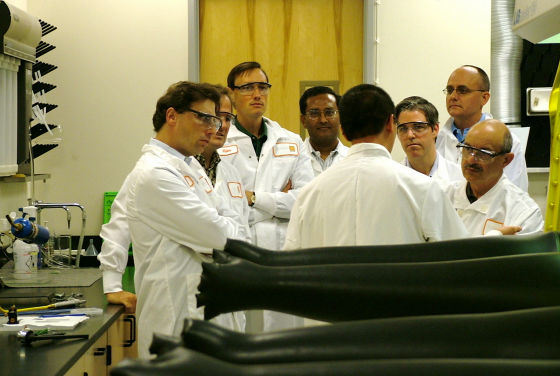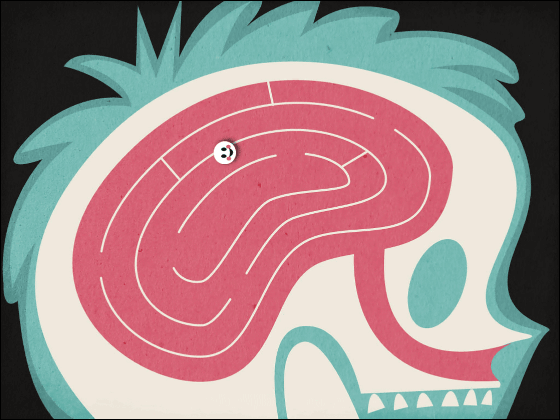What is the credibility of the description "game design based on scientific evidence" often seen in intellectual training games?

ByYuan 2003
Descriptions such as "supervision of a professor at a famous university" or "game design based on an actual research" that you often see on the product page of an intellectual training game or an application may improve the reliability of the game and enhance the user's willingness to purchase. However, we are working on many longevity research "The Stanford Center on Longevity"Research on human development studies"Max Planck Institute for Human Development"Doubts about" scientific grounds "used by intellectual training games and applications, collected ideas together and exchanged opinions unexpected facts were discovered.
Brain-Training Companies Get Advice From Some Academics, Criticism From Others - The Chronicle of Higher Education
http://chronicle.com/article/Brain-Training-Companies-Get/149555/
A Consensus on the Brain Training Industry from the Scientific Community
http://longevity3.stanford.edu/blog/2014/10/15/the-consensus-on-the-brain-training-industry-from-the-scientific-community-2/
According to Laura L. Carstensen, director of The Stanford Center on Longevity and psychologist, he purchased an educational game by seeing the propaganda that "Professor of a famous university served as game supervisor based on actual research data" There are many inquiries from the user "There is absolutely no relation between" actual research data "and" effect of educational game "?" There are raising voices worrying from professors and researchers in psychology. In response to the opinions of consumers and researchers, 70 people were gathered to gather knowledge of psychology, neuroscience and gerontology.
At the meeting, "Lumosity"Or"Cogmed"There are lack of transparency in the data and research results used by companies such as companies to advertise intellectual training games, not complying with the regulations in specialized fields, even by researcher fellows and experts in the same fieldPeer reviewIt was pointed out that it was not done.

BySteve Jurvetson
Professor L. Todd Rose of Harvard University Neurosciences Department attending the meeting said, "Although university researchers may participate in the research of companies that sell intellectual games, this is a matter of concern, It's like selling your name for corporate product sales. "
Randall W. Engle Professor at the Georgia Institute of Technology · psychology also said, "When I was asked about Lumosity's research plan, I was very troubled, why is research done for Lumosity companies? It is because I did not understand well whether it was done for scientific purpose or scientific purpose. "It was highlighted that researchers have distrust of participation in intellectual development game development.
Professor Rose at Harvard University who has received an offer as an advisor for game development has concluded a preliminary agreement with a game development company to withhold refusing to give the name of Professor Rose until crediting is started However, it was discovered that the company that tentatively agreed used the name of Professor Rose for the product page of the game to increase contribution. Right anger Professor Rose seems to have discarded the temporary contract shortly thereafter.
Professor Rose said, "Although it is a personal view, thinking that researchers participate in game development and get money is the same as medical researchers receiving money from pharmaceutical companies, The offer to be offered to the researcher is quite expensive and even if we have a dishonest impression on the company, we will accept the offer, "and the other experts who were present also agreed with the opinion of Professor Rose He said that he was.

ByToca Boca
Associate professor Susanne M. Jaeggi of the University of California at Irvine is one of the people who distrusts the intellectual game enterprise. Associate Professor Jaeggi cooperated with the project of Lumosity several years ago, but disregarded the results of cooperating research and data from Lumosity and destroyed the cooperative relationship. However, even though the name of Jaeggi Associate Professor has not been deleted forever from the site of Lumosity, it is also discovered that even the other companies do not obtain permission and credited the name of Associate Professor Jaeggi.
Some experts say, "Not all intellectual game development companies are doing peer reviews on research, or do not provide unclear data to participating researchers". However, many researchers expressed their opposition to an intellectual game that describes scientific evidence of research results done without formal process.

ByTraci Lawson
In other words, even if the name of the professor of a famous university is mentioned in the introduction of the intellectual training game, it is not possible for the user to judge whether it can be trusted or not, rather than expecting a big effect on the intellectual training game, it is enjoyed as a game It seems to be better. The Stanford Center on Longevity and Max Planck Institute for Human Development are planning to investigate intellectual training games in the future.
Related Posts:
in Science, Posted by darkhorse_log







